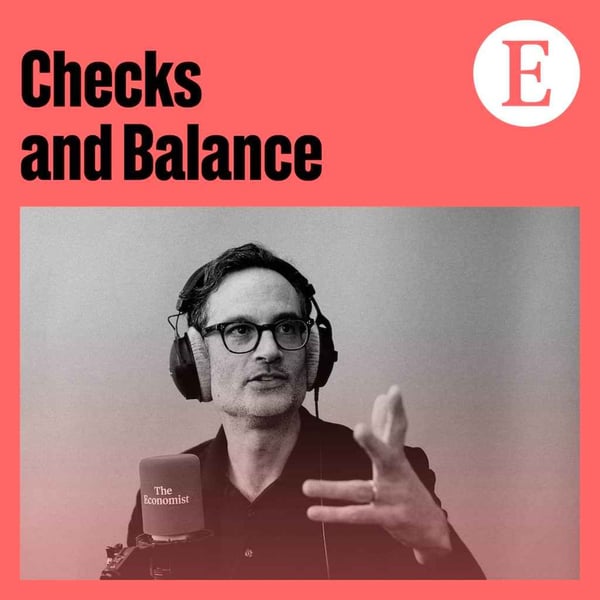Checks and Balance: Cop out
Checks and Balance from The Economist
The Economist
4.6 • 1.7K Ratings
🗓️ 8 October 2021
⏱️ 44 minutes
🧾️ Download transcript
Summary
When Democrats took control of Congress and the presidency, it raised hopes that real change could happen in a criminal justice system tarnished by racism and police brutality. But federal efforts have stalled and progressive local prosecutors are hitting roadblocks. Why is law enforcement so resistant to reform?
The National Sheriffs’ Association’s Jonathan Thompson tells us police are open to some change. We go back to when an amateur video tape shone a light on racist cops. And Boston District Attorney Rachael Rollins explains why she’s stopped prosecuting a number of non-violent crimes.
John Prideaux hosts with Charlotte Howard and Jon Fasman.
For full access to print, digital and audio editions as well as exclusive live events, subscribe to The Economist at economist.com/USpod
Hosted on Acast. See acast.com/privacy for more information.
Transcript
Click on a timestamp to play from that location
| 0:00.0 | When it comes to investing, there's do, and then there's do more. |
| 0:04.9 | That's why at BlackRock we've built MyMap, a simple multi-acid range that makes investing |
| 0:09.8 | easier and does more for your money. |
| 0:12.3 | Choose from a range of ready-made, actively managed and sustainable funds, each providing |
| 0:16.7 | more diversification than a single asset, and designed with different risk levels in mind, |
| 0:22.1 | so you choose the best option for you. |
| 0:24.8 | Search BlackRock MyMap now to do more. |
| 0:28.0 | Capital at risk, the value of investments and the income from them can fall as well as |
| 0:31.5 | rise and are not guaranteed. |
| 0:33.6 | Investors may not get back the amount originally invested, diversification and asset allocation |
| 0:37.7 | may not fully protect you from market risk. |
| 0:46.5 | The proto-police forces that patrolled the streets of colonial America differed according |
| 0:51.3 | to latitude. |
| 0:52.9 | From the north, 17th century law enforcement arrived in the form of night watchmen in cities |
| 0:57.6 | like New York and Boston. |
| 1:00.1 | A Ragtag group of volunteers and ex-criminals, they were handicapped by a tendency to drink |
| 1:04.8 | or fall asleep on the job. |
| 1:07.2 | While they tried to catch people gambling or engaging prostitutes, their equivalents in |
| 1:11.8 | south were there to reinforce racial division. |
| 1:15.6 | Charleston established the first slave patrol in 1704. |
| 1:20.2 | It was replicated across the Carolinas and beyond as a means for whites to stop slaves |
| 1:24.6 | escaping and to reinforce the south's oppressive racial code. |
... |
Please login to see the full transcript.
Disclaimer: The podcast and artwork embedded on this page are from The Economist, and are the property of its owner and not affiliated with or endorsed by Tapesearch.
Generated transcripts are the property of The Economist and are distributed freely under the Fair Use doctrine. Transcripts generated by Tapesearch are not guaranteed to be accurate.
Copyright © Tapesearch 2025.

